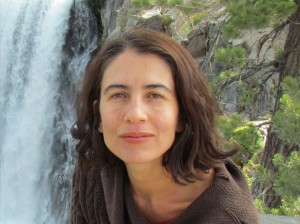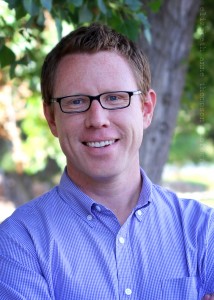How to Have a Worthwhile Education: Top 11 Recommendations
September 5, 2012
For many of the readers at JPMoreland.com, the Fall marks a new school year. We asked each of our blog contributors to offer some timely reflection and advice about education and life. We've thematically arranged the comments by Juliet Setian, Ryan Bradley and Timothy Bayless in light of the three main emphases below:
I. ON EDUCATION and PERSONAL DEVELOPMENT
 1. How should we think about education? Much of education can be propaganda. In Soviet Armenia we were taught by our educators that Lenin and the Bolshevik revolution had lavished wonderful things upon us and that whoever didn’t believe this was an enemy and deserved to be punished. But nobody (except we, the kids) believed this; they only pretended. They didn’t believe it because they could see that this picture of reality didn’t correspond with the reality of their day-to-day lives. Also, our educators lacked hope that things could be different, so they bought into the idea that saying what one knows to be false in order to secure one’s position, is completely justified. No doubt, this happens in many different situations, all over the world. But for us, Christians, there is a different way.
1. How should we think about education? Much of education can be propaganda. In Soviet Armenia we were taught by our educators that Lenin and the Bolshevik revolution had lavished wonderful things upon us and that whoever didn’t believe this was an enemy and deserved to be punished. But nobody (except we, the kids) believed this; they only pretended. They didn’t believe it because they could see that this picture of reality didn’t correspond with the reality of their day-to-day lives. Also, our educators lacked hope that things could be different, so they bought into the idea that saying what one knows to be false in order to secure one’s position, is completely justified. No doubt, this happens in many different situations, all over the world. But for us, Christians, there is a different way.
Rowan Williams says that education is an enterprise where faith, hope and charity should be at work. Faith comes in when we test and see whether or not we can trust the arguments we’ve been given. Do they make sense? Do they correspond with reality? What picture of reality do they give us, and does this picture make sense given what we know to be true? Hope is having the conviction that it’s possible to act collaboratively and harmoniously with other human beings for a common good, without rivalry and cutthroat pursuit to secure our position. Charity comes in when we are generously aware of views different from ours and are willing to honestly and charitably engage and hear them. So, in education, we should practice faith, hope and charity.
2. How can we make the most out of our education? We should consider ourselves immensely blessed for having the kind of education that’s available to us here in the U.S. But along with the blessings come obligations. Our education is not just for ourselves--to fulfill our personal needs and ambitions, to secure a good position, then sit back and enjoy. If much has been given to us, then much will be required. This is a sobering thought.
When Alexander Solzshenitsin, a writer, was arrested and imprisoned (for 11 years) in Stalinist Russian, for anti-Soviet propaganda, he continued to write in secret because as he says, writers can vanquish lies. His books were banned in the Soviet Union but were eagerly read in the West. Though in fear of his life, he wrote profusely because he believed that retreating, “losing faith in the steadfastness of good, in the indivisibility of truth” was not an option. He felt keenly and took seriously his responsibility as a writer, to his people and to mankind, in general. Because of his writings people all over the world became aware of the monstrous gulag system in Russia.
So, we don’t need to be heroic and seek out dramatic situations for ourselves, but we should strive for excellence by giving our all in whatever work God has given us to do, and then allow God to manage the outcome. For further reading, consider Eleonore Stump's "Aristocracy and Obligation."
 3. Think 'vocation,' not just 'job,' advises Timothy Bayless. Don't think of the goal of your education as merely a means to get a job; that's important, but it's not the only, or even the chief, purpose of school. Instead, think of the purpose of education as subordinate to your larger purpose in life--your vocation. Your vocation typically includes a job, but also all the other things that you're to be a steward of—a keeper or caretaker of. It includes stewardship of your skills and giftings, relationships with family, friends, and classmates, the needs of those around you, and the experiences God has allowed into your life.
3. Think 'vocation,' not just 'job,' advises Timothy Bayless. Don't think of the goal of your education as merely a means to get a job; that's important, but it's not the only, or even the chief, purpose of school. Instead, think of the purpose of education as subordinate to your larger purpose in life--your vocation. Your vocation typically includes a job, but also all the other things that you're to be a steward of—a keeper or caretaker of. It includes stewardship of your skills and giftings, relationships with family, friends, and classmates, the needs of those around you, and the experiences God has allowed into your life.
4. Be involved in a local church, encourages Ryan Bradley. While this isn’t very 'academic,' it is the most important advice I can give to any student. If you are an undergraduate, you need to be active in a community of people that are not all in the same life stage and suffering from the same temptations and assumptions as you. If you are a seminary student, you need to be with the people you are learning to serve and looking for opportunities to begin both serving now and building up credibility so that you will be offered weightier opportunities in the future. If you are a graduate student, you need a committed Christian community to guard you against the isolation and despair of high level study, and you need to relate with them in order to avoid becoming weird.
II. ON STUDY HABITS
Ryan Bradley offer the below advice for 1) and 2).
 1. Read beyond your assigned readings. If you are in a secular/pluralistic institution, read serious academic works by respected Christians in your field. If you are an undergraduate, look for introductory texts used at Christian universities to supplement assigned readings and help approach your field from a Christian perspective. Reading one book each semester in about your major from a Christian perspective is a huge help. The recommending reading list from Moreland’s Love Your God with All Your Mind was a huge help to me in my last year or two of college. Get the updated, anniversary edition and study guide (releases mid-September)! You can also check the websites for Christian schools such as Biola University and Wheaton College for the assigned readings in similar courses, either through their campus bookstore page or by looking for pages for individual professors. As a graduate or undergraduate, journals such as First Things, Books and Culture, and Mars Hill Audio Journal offer a broad introduction to a variety of academic issues either from explicitly Christian or Christian-friendly perspectives, while Image does the same for literary and visual arts. By the time you are an upper division undergraduate you should be subscribing to and reading at least one Christian academic journal in your field, and as a graduate student you should at least seriously consider tailoring coursework to submit to it. Moreland’s appendixes in Love Your God also has information on these journals and their respective academic societies. If you are at a Christian institution, you should be doing essentially the same thing with non-Christian sources. Join the conversation in your field and understand the areas of debate. Do not let this overburden you. One extra book a semester or one journal subscription a year for undergraduates, a little more for graduate students, will accomplish more than you think.
1. Read beyond your assigned readings. If you are in a secular/pluralistic institution, read serious academic works by respected Christians in your field. If you are an undergraduate, look for introductory texts used at Christian universities to supplement assigned readings and help approach your field from a Christian perspective. Reading one book each semester in about your major from a Christian perspective is a huge help. The recommending reading list from Moreland’s Love Your God with All Your Mind was a huge help to me in my last year or two of college. Get the updated, anniversary edition and study guide (releases mid-September)! You can also check the websites for Christian schools such as Biola University and Wheaton College for the assigned readings in similar courses, either through their campus bookstore page or by looking for pages for individual professors. As a graduate or undergraduate, journals such as First Things, Books and Culture, and Mars Hill Audio Journal offer a broad introduction to a variety of academic issues either from explicitly Christian or Christian-friendly perspectives, while Image does the same for literary and visual arts. By the time you are an upper division undergraduate you should be subscribing to and reading at least one Christian academic journal in your field, and as a graduate student you should at least seriously consider tailoring coursework to submit to it. Moreland’s appendixes in Love Your God also has information on these journals and their respective academic societies. If you are at a Christian institution, you should be doing essentially the same thing with non-Christian sources. Join the conversation in your field and understand the areas of debate. Do not let this overburden you. One extra book a semester or one journal subscription a year for undergraduates, a little more for graduate students, will accomplish more than you think.
2) Pray specifically about your studies. Pray before, during, and after studying, sitting in class, and writing. But also pray about your studies during “regular” times of prayer (whether that is a set time of daily prayer or spontaneous moments of prayer throughout the day). Combine this prayer with meditation (or “serious reflective thinking” if you prefer) seeking to apply your studies to your own spiritual life and to the lives of others (you might try imagining a hypothetic lecture, sermon, or conversation over coffee in which you include spiritual applications from your area of study). This might range from why your studies draw you to worship (what awe-provoking reality about God can you find?) to arguing (even to yourself) why it is so essential to work out the implications of a particular argument in light of the reality of God (ie. “A commonly held view in my field is X1, but that belief is based on assumption Y1 about the irrelevance/non-existence of God, and it has the terrible set of implications Z1. However, X2 is actually true because it follows from reality Y2 about God, which leads to the wonderful implications Z2, for which I now give thanks to God”).
Timothy Bayless offers the below advice for 3) and 4). Notice how it compliments and extends Ryan's 1) and 2) in some important ways:
3) Take up a habit that helps integrate your knowledge. Being a good steward of something requires understanding it; being a good steward of your education requires understanding how and where the Christian worldview pertains to your field of study. The various disciplines don't exist in separate compartments from one another: theology, philosophy, physics, chemistry, biology, political science, mathematics, art, ethics, etc.—they all make claims about the same world. Take up the habit of asking yourself, "What are some of the assumptions of this field of study, and are those assumptions true?" or, "How do I relate what I'm learning in subject A to what I learn in B, C, and D?" or again, "How do I relate this to my knowledge of God?"
4) Learn the basic rules of critical thinking. To think carefully about your discipline, you should learn at least some basic rules of logic and some common logical fallacies. It might sound tedious or dry if you've never tried to do this, but it's not that tough--you could accomplish it in a month, reading just a few minutes a day--and it's nearly impossible to overstate how much this will help you begin thinking carefully about any issue at all.
III. BONUS ADVICE for SPECIFIC KINDS OF STUDENTS
by Ryan Bradley
 1) To Undergraduates: Go on as many first dates in college as you possibly can. You will never have another opportunity to meet so many different Christians your own age. This will be an incredible learning experience for you, especially if you treat it as a spiritual exercise (i.e. pray and journal afterwards about what you learned about yourself, what you value and respect and are attracted to, what you want for your life, etc). It may literally take you a decade to meet as many single Christians as you will in college, even if you are not a Christian school. This does not mean that you should necessarily get into a serious relationship, especially your first year of college. And for the sake of all that’s good and holy, don’t lead anyone on, get into anything that could be mistaken for a relationship with more than one person, or date outside the faith. Do, however, go on a lot of small and casual dates: coffee, not-too-romantic dinner (i.e. there’s a waitress but no candlelight), etc, being clear on the date that your intentions are modest.
1) To Undergraduates: Go on as many first dates in college as you possibly can. You will never have another opportunity to meet so many different Christians your own age. This will be an incredible learning experience for you, especially if you treat it as a spiritual exercise (i.e. pray and journal afterwards about what you learned about yourself, what you value and respect and are attracted to, what you want for your life, etc). It may literally take you a decade to meet as many single Christians as you will in college, even if you are not a Christian school. This does not mean that you should necessarily get into a serious relationship, especially your first year of college. And for the sake of all that’s good and holy, don’t lead anyone on, get into anything that could be mistaken for a relationship with more than one person, or date outside the faith. Do, however, go on a lot of small and casual dates: coffee, not-too-romantic dinner (i.e. there’s a waitress but no candlelight), etc, being clear on the date that your intentions are modest.
2) To New Graduate Students: If, in your first semester or two, you don’t feel stupid, unprepared, and scared that you will be exposed as a fool who doesn’t belong in your program, you are probably not in a difficult enough program. It is a rarely said aloud, but most students feel that way, especially in the first year of a doctoral program. By the end of your first year, you will have grown and learned so much that you should feel much more confident, especially if you have the opportunity to talk with scholars/students/professors outside your area (you don’t need to show off your knowledge – just talking about your classes, projects, and interests will be enough to remind you that no one has any idea what you are talking about – now just remember that you didn’t either a year ago!).
3) To Doctoral/Advanced Graduate Students: Professors will often neglect to assign introductory or background reading, expecting you to either know the course subject or find out about it on your own. Do at least some introductory reading, ideally in the weeks before a semester begins, on any subject in which you are not already well acquainted. If it is too late for that, set aside time to read these sources, even if it means spending less time on assigned readings for the first few weeks. A half hour with a good introductory chapter or an article in something like a Blackwell’s or Oxford Companion can make all the difference when you are thrown into the deep-end of a specialized seminar.
Amen.
What are some other recommended habits and perspective on education, discipleship and life?


Comment With Care